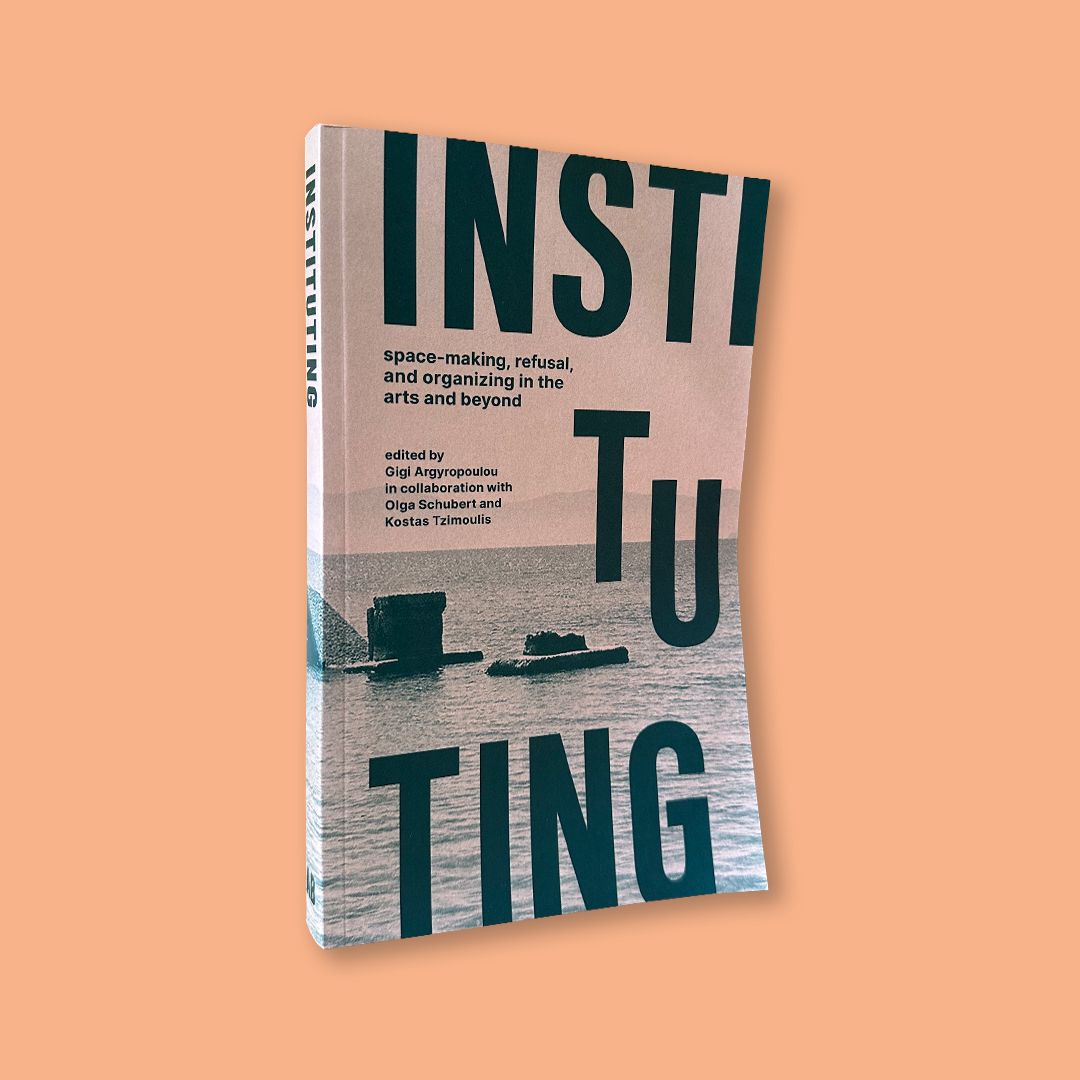“Mandela was not the only head of state taken in by Koagne. Le king kept snapshots of himself with many a man of power, among them Mobutu Sese Seko and Denis Sassou Nguesso […] He took Mobutu for 15 million dollars. Blaise Compaoré of Burkina Faso lost 40 million to him. Sassou, Etienne Eyadéma of Togo, several high officials of Gabon, Tanzania and Kenya, a member of the Spanish government and an ex-operative of the Israeli Mossad were bamboozled as well.” – Dominique Malaquais (Blood Money: A Douala Chronicle).
Bantu Serenade by Ntone Edjabe (featuring Nah-ee-lah) (read excerpt)
Santu Mofokeng: Trajectory of a street photographer (part1) (read excerpt)
Binyavanga Wainaina: Hell In Bed With Mrs Peprah (read excerpt)
Dominique Malaquais: Lindela (the winnie suite) (read excerpt)
Boubacar Boris Diop: Myriem (read excerpt)

Cover:
Neo Muyanga
Instituting: space-making, refusal, and organizing in the arts and beyond eds. by Gigi Argyropoulou in cooperation with Olga Schubert and Kostas Tzimoulis (Archive Books and HKW, 2022)
Instituting: space-making, refusal, and organizing in the arts and beyond eds. by Gigi Argyropoulou in cooperation with Olga Schubert and Kostas Tzimoulis (Archive Books and HKW, 2022)
This publication seeks to continue previous trans- formative moments, movements, and encounters, as a call for new densities through visible and invisible plottings. Editorials tend to focus on the work that is going to follow that comprises a complete volume on the subject. However, this edition cannot but start by acknowledging dependencies, connections, and thus its incompleteness as it is pointing towards potential constellations of practice. Engaging with ongoing questions of possible infrastructures in situations of brokenness—as Lauren Berlant notes in the opening quote—this volume brings together practices, ways of being together, of both fleeing and inhabiting spaces. Stefano Harney and Fred Moten propose “commitment to the impermanence of form because form is to be used, like an everyday thing” and that by using it you “deform it . . . acceding to and enacting its transformation, in and for the everyday.” In this publication, instituting is discussed as a continuous process that is integral to the everyday, making and tearing apart, using and deforming. In a sense, this book hopes to function as an infrastructure for use. An incomplete composition that has already started in many places.

